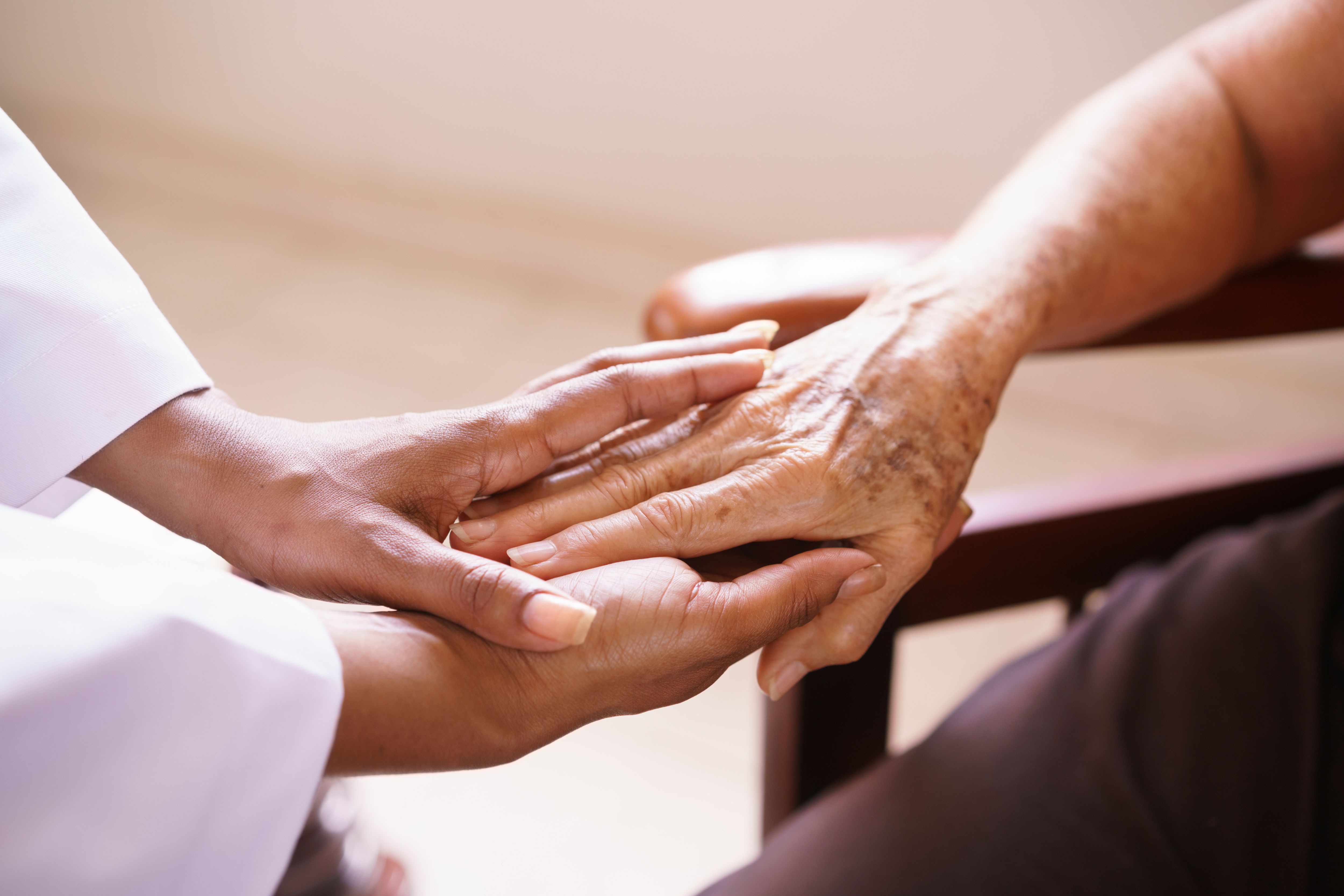Imagine chasing your grandkids through the park, laughing and having a blast. Or maybe you picture yourself enjoying a peaceful walk in the sunshine, feeling strong and energized. These moments are what make life special, and strong bones are key to making them possible.
As we get older, our bones can become weaker. But don’t worry—there are things we can do to keep our bones healthy and strong, so we are able stay active and live life to its fullest.
What is osteoporosis?
Think of your bones like a sponge. When you’re young, the sponge is thick and strong. But as you get older, the sponge can start to get thin and weak, with bigger holes. That’s similar to what happens to your bones if you have osteoporosis.
Osteoporosis is when your bones become thin and weak, making them more likely to break. It happens when your body loses bone faster than it can make new bone. This can happen for many reasons, including getting older, not getting enough calcium, or having certain health conditions.1
There’s also something called osteopenia. It’s like a milder version of osteoporosis. Your bones are a little thinner than they should be, but not so thin that they’re likely to break easily.2
Why is diet important for bone health?
What we eat plays a big role in keeping our bones strong. Certain nutrients, like calcium and Vitamin D, are like building blocks for our bones.3 They help keep our bones dense and healthy. If we don’t get enough of these nutrients, our bones can start to lose strength.
Key nutrients for strengthening your bones
There are several nutrients that are super important for bone health. Let’s look at the top six:3
- Calcium: Helps build strong bones and keeps them strong over time.
- Vitamin D: Helps your body absorb calcium from food.
- Magnesium: Helps build bones and helps your body use Vitamin D.
- Potassium: May help keep you from losing bone as you get older.
- Vitamin K: Helps your body use calcium to build bone.
- Vitamin C: Helps your body make collagen, which gives bones strength and flexibility.
Always consult your doctor before making changes to your diet or supplement routine, especially if you take medications like blood thinners.
Top 5 foods for bone health
The good news is that you can find these bone-building nutrients in many of the foods you already eat! Let’s explore five food categories that are especially good for your bone health.
1. Dairy products
Dairy products like milk, cheese, and yogurt are excellent sources of calcium.3 They’re often fortified with Vitamin D, which is a bonus! Choose reduced-fat options to save on calories and fat.
Some people can’t or don’t want to eat dairy products. Maybe they’re lactose intolerant, following a vegan diet, or just don’t like the taste. That’s ok! There are plenty of dairy-free options available. Look for lactose-free milk, or try plant-based alternatives like almond milk, soy milk, or rice milk. These are often fortified with calcium and Vitamin D. You can also talk to your physician about calcium supplements.
And remember, there are many other foods that are rich in calcium, too!
2. Fish
Fish can be a great source of bone-building nutrients. Canned fish with soft bones, like sardines and salmon, are packed with calcium. Fatty fish like salmon, mackerel, and tuna are also rich in Vitamin D.3
Plus, fish contains omega-3 fatty acids and protein, which are good for your overall health.
3. Fruits
Fruits are not only delicious but also beneficial for your bones.3 They help balance the acid in your body. Many fruits are rich in antioxidants and other beneficial nutrients.
Citrus fruits like oranges and grapefruits are high in Vitamin C. Figs have calcium, potassium, and magnesium. Bananas, plantains, and prunes are high in potassium.
4. Vegetables
Many vegetables are a good source of bone-building nutrients. Dark leafy greens like spinach and kale are packed with calcium and Vitamin K.4 Broccoli, Brussels sprouts, potatoes, and peppers are also a good choice.
5. Fortified foods
Fortified foods have extra calcium and Vitamin D added to them. This can be a great way to boost your intake of these important nutrients.
Look for fortified milk, orange juice, and breakfast cereals. Compare labels to see which products are the most nutritious.
Foods to be careful with
While many foods are good for your bones, some can interfere with calcium absorption or leach the calcium from your bones. It’s important to be mindful of these foods and eat them in moderation.
Here are some foods to be careful with:
- Salty foods: Too much salt can cause your body to lose calcium. Try to limit your intake of processed foods, which are often high in salt.
- Foods with phytates (beans) or oxalates (spinach): These can bind to calcium and make it harder for your body to absorb. Soaking beans before cooking them can help reduce the phytate content.
- Alcohol: Drinking alcohol can interfere with bone formation. Limit your alcohol intake to one drink per day for women and two drinks per day for men.
- Caffeine: Try to limit your intake of coffee, tea, and soda, as too much caffeine can cause your body to lose calcium.
- Colas: Soft drinks contain phosphoric acid, which can leach the calcium from your bones. Choose other beverages instead, like water or milk.
Other ways to keep your bones strong
Eating a healthy diet is important, but it’s not the only thing you can do to
- Be physically active: Weight-bearing exercises, like walking, dancing, and gardening, are great for bones. They help stimulate bone growth and keep your bones strong. Remember to talk to your physician before starting any new exercise program.
- Quit smoking: Smoking is bad for your bones. It can interfere with bone formation and increase your risk of fractures.
- Take steps to prevent falls: Falls are a major cause of broken bones in seniors. Make sure your home is safe by removing tripping hazards, using good lighting, and installing grab bars in the bathroom. Consider using a cane or walker if needed.
- Talk to your physician about supplements: You may need calcium or Vitamin D supplements, especially if you’re not getting enough of these nutrients from your diet. Be sure to talk to your physician first to see if supplements are right for you.
Keeping your bones strong is a lifelong journey. By eating a balanced diet rich in bone-building nutrients, limiting foods that can interfere with calcium absorption, and staying active, you can help keep your bones healthy and strong for years to come.
Remember, even small changes can make a big difference. Talk to a physician or a registered dietitian for personalized advice on how to improve your bone health.
Current content on this page is for informational purposes only and does not constitute medical advice. Always consult your healthcare provider before starting any new fitness or dietary plan. References are provided for informational purposes only and do not imply endorsement of any website or other sources. For any health-related questions, contact your healthcare provider.



